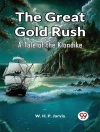Manto is a legendary writer from India and Pakistan, famous for his works in Urdu fiction at the time of the partition of India and Pakistan in the mid-1900s. The knowledge of his ideology and work will be vastly important to the new generation. Manto was a bearer of liberal ideology. He wrote short stories about prostitutes and other taboos, and he touched subjects that stirred many controversies. The people in power saw their own ugly faces reflected back to them in his fiction. They dragged him into the courts of law. Publishers took his rightful profits away from him and bought his works in return for a mere bottle of alcohol. He led a sad and angry life, and he left this world without enjoying any benefit from his immense creativity. Still, even in his short life he left a mark on Urdu and Hindi literature that will last for generations to come. This collection begins with two essays he wrote defending his works and making his case for what’s literature and what’s obscenity. Also included are all six short stories for which he was dragged in courts of law, as well as a careful selection of his other works. In these times of political strife and upheaval, this collection of Manto’s works is more important than ever.
Jadual kandungan
- منٹو کے حاشیے ۔ کیوں؟
- منٹو
- منٹو کا مقدمہ اس کے اپنے قلم سے
- لذت سنگ
- سفید جھوٹ
- جن افسانوں پر مقدمات ہوئے
- دھواں
- بُو
- کالی شلوار
- کھول دو
- ٹھنڈا گوشت
- اوپر نیچے اور درمیان
- منتخب افسانے
- سہائے
- شریفن
- بلاؤز
- ہتک
- نیا قانون
- بابو گوپی ناتھ
- الوداع
Mengenai Pengarang
Saadat Hasan Manto (/mɑːn, -tɒ/; Urdu: سعادت حسن منٹو, pronounced [səˈaːd̪ət̪ ˈɦəsən ˈməɳʈoː]; 11 May 1912 – 18 January 1955) was a writer, playwright and author born in Ludhiana active in British India and later, after the Partition of India, in Pakistan.Writing mainly in Urdu, he produced 22 collections of short stories, a novel, five series of radio plays, three collections of essays and two collections of personal sketches. His best short stories are held in high esteem by writers and critics. Manto was known to write about the bitter truths of society that no one dared to talk about. He is best known for his stories about the partition of India, which he opposed, immediately following independence in 1947.Manto was tried for obscenity six times; thrice before 1947 in British India, and thrice after independence in 1947 in Pakistan, but was never convicted. He is acknowledged as one of the finest 20th century Urdu writers



![perlindungan daripada Bernadette Andrea: Grace Norton [Gethin] and Frances (Freke) Norton perlindungan daripada Bernadette Andrea: Grace Norton [Gethin] and Frances (Freke) Norton](https://static.worldofdigitals.com/thumb_webp/264/9781351932264.webp)








